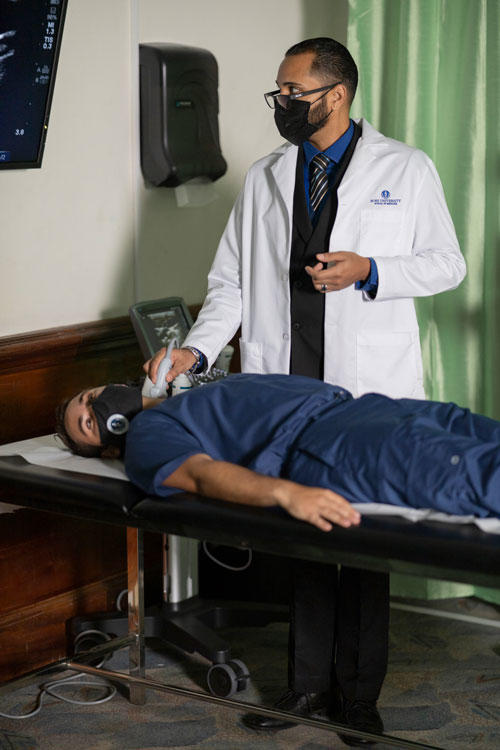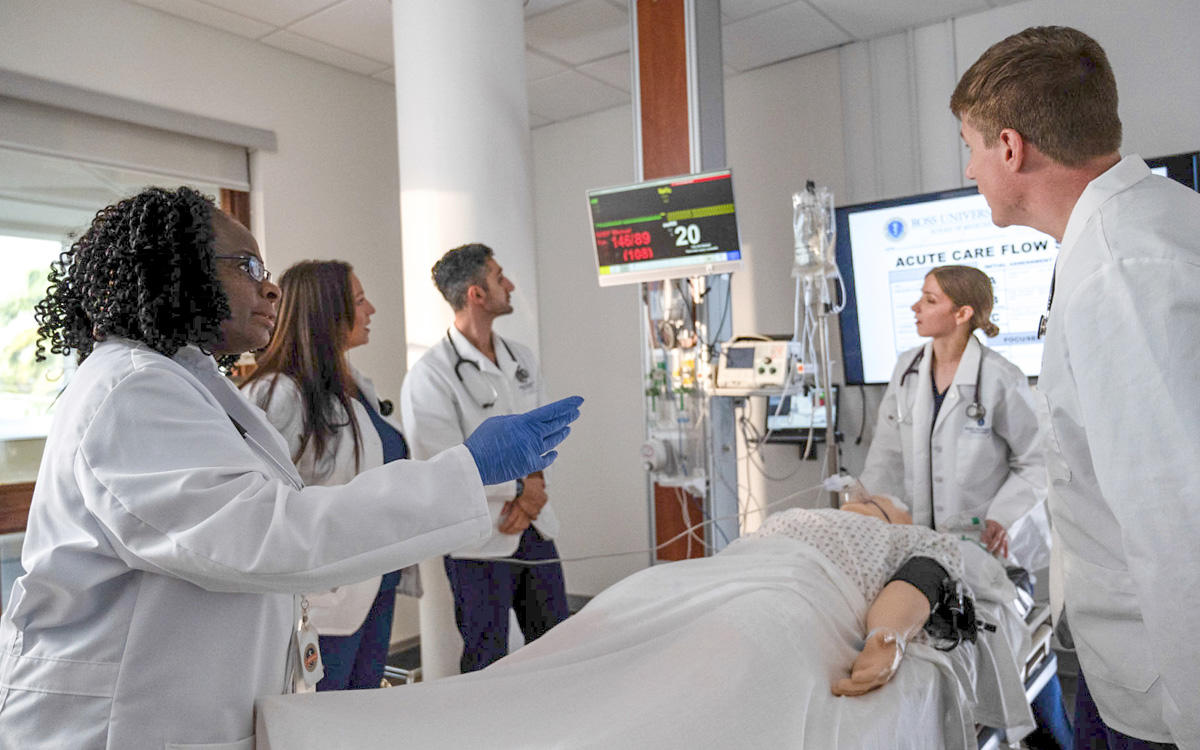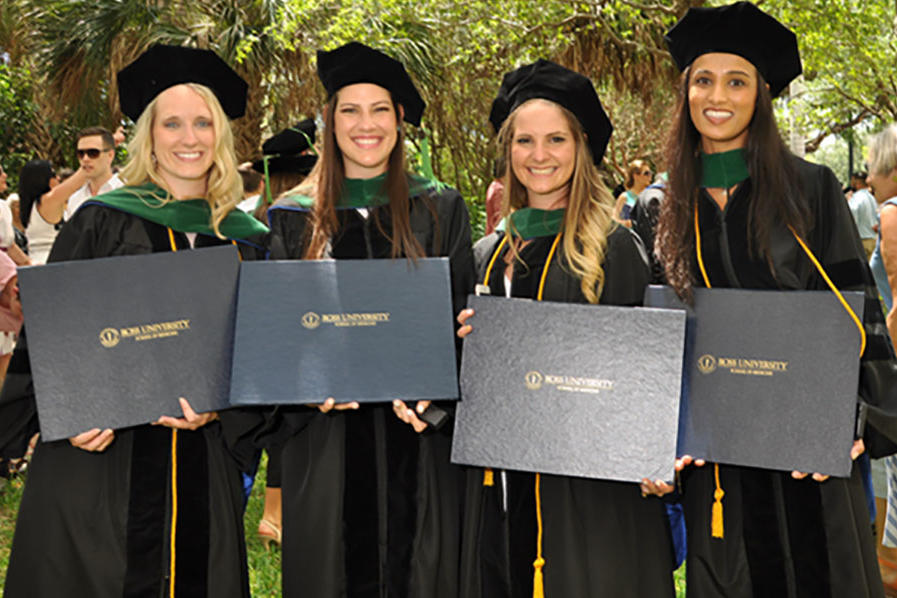United States Medical License Exams
Ross Med students can rely on a full range of academic and personal support throughout the academic journey—from the preclinical aspects of the program to application for licensure. Designed to encourage active learning, critical thinking, and leadership, a degree from Ross Med supplies students with the tools needed to successfully meet and exceed standards for graduation, residency attainment, licensure, and entry into their medical careers.
The United States Medical Licensing Examination® (USMLE®) Steps 1 and 2 are taken after the Medical Sciences curriculum and during the Clinical Sciences curriculum respectively. Step 3 occurs after graduation, typically during medical residency. After passing all three exams and completion of their medical residencies, doctors may apply for licensure.
1 First-time residency attainment rate is the percent of students attaining a 2024-25 residency position out of all graduates or expected graduates in 2023-24 who were active applicants in the 2024 NRMP match or who attained a residency position outside the NRMP match.
2First-time pass rate is the number of students passing the USMLE Step 1 exam on the first attempt divided by the number of students whose first attempt was in 2019-2023. In order to sit for the USMLE Step 1 exam students must successfully complete the Medical Sciences curriculum and earn a satisfactory score on the NBME CBSE exam as listed in the student handbook.
USMLE STEP 1
A medical school might measure its success by the number of students who pass their first USMLE exam, and Ross Med students do well.
Students must pass USMLE Step 1 to begin their clinical training. The exam tests the general principles of the basic medical sciences. Students don’t need to know it all, but they do need a solid foundation of medical knowledge and skills.
USMLE Step 2
Students may take the USMLE Step 2 Clinical Knowledge (CK) during Clinical Sciences. Step 2 CK focuses on the clinical application of your expanding medical knowledge. The test assesses a student’s ability to apply medical knowledge, skills, and understanding of clinical science to the provision of patient care.
The USMLE Step 2 CK also probes students’ knowledge of disease prevention and health promotion, and ensures students are learning the principles of clinical sciences and basic patient-centered healthcare skills. Ross Med students' five-year cumulative first-time pass rate for the USMLE Step 2 CK exam is 93.6% from 2019-2023.*
*First-time pass rate is the number of students passing the USMLE Step 2 CK exam on the first attempt divided by the number of students whose first attempt was in 2019-2023. In order to sit for the exam students must earn an acceptable score on the NBME CCSE as listed in the catalog.
Frequently Asked Questions
The USMLE has three steps: two typically taken during Clinical Sciences and one during residency.
The USMLE Step 3 is not required for residency, but doctors-in-training must pass the exam to be licensed to practice medicine.
USMLE costs for each step can be found through the usmle.org “Apply for Exams” page. A breakdown of USMLE costs for foreign medical graduates can be found on the ECFMG™ “Fees Overview” page.
Physicians must pass all three USMLE steps to become eligible to apply for a license to practice medicine in the United States.



